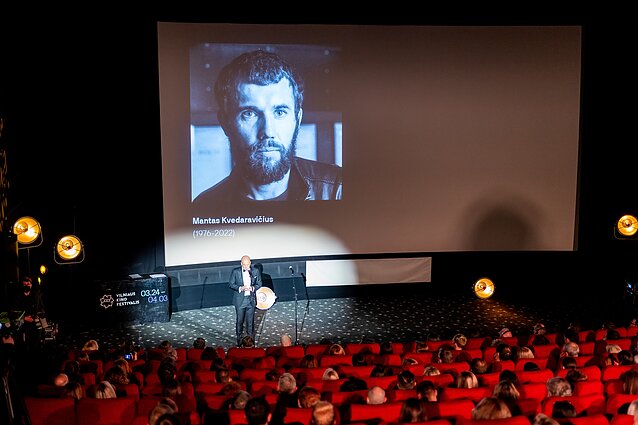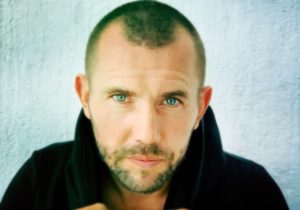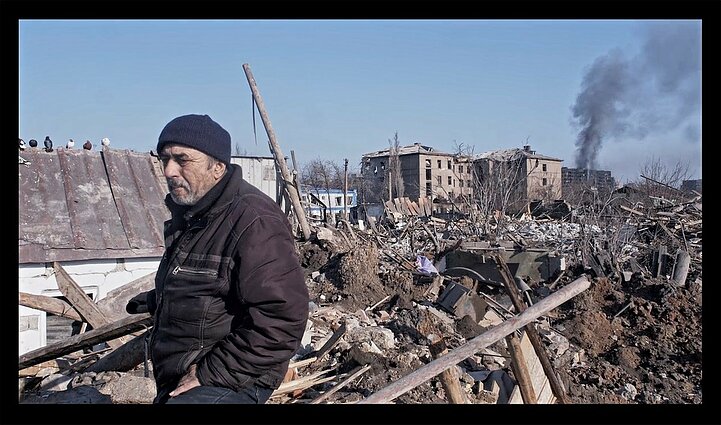
His film on Mariupol to be in Cannes Festival

Lithuanian news website 15min.lt revealed that filmmaker Mantas Kvedaravičius was abducted by Russian soldiers and executed. His colleague, Ukrainian journalist Albina Lvutina said that the true circumstances of his death were kept hidden until his body was recovered and delivered to Lithuania.
It was earlier reported that the Lithuanian filmmaker was killed on April 2 near Mariupol by a missile hitting his car. According to Lvutina, this was deliberate falsification to make sure his body could be recovered from Russian-controlled areas. Apparently Kvedaravičius was killed before April 2. When news broke about his death, Kvedaravičius’ wife was at the border about to leave Russia with the body, Lvutina said.
The Lithuanian Prosecutor General’s Office said it would investigate Kvedaravičius’ death as part of a probe of war crimes committed in Ukraine.
Kvedaravičius, 45, debuted as a filmmaker in 2011 with Barzakh, an award-winning documentary about war-torn Chechnya. In 2016, his documentary Mariupol was selected for the Berlinale. His producer Uljana Kim said that Kvedaravičius had been filming a new documentary in Uganda. However, when Russia launched its invasion of Ukraine in late February, Kvedaravičius left for Mariupol, to document the war, and had been working in Ukraine since mid-March.
Mariupol 2, Kvedaravičius’ latese documentary will be screened at the 75th Cannes International Film Festival, the Lithuanian Film Centre said on May 12. The film about the city devastated by the ongoing Russian invasion will have its international premiere on May 17, in the programme Cannes Premieres. According to the Lithuanian Film Centre, Mariupol 2 is “a mosaic of everyday moments in a city at war”.
In 2016, Kvedaravičius’ previous documentary about Mariupol premiered at the Berlin International Film Festival. “You know what was absolutely incredible in Mariupol? Nobody was afraid of death, even though they thought they were. Death was already here and everyone wanted to die in a meaningful way. People helped each other even at the risk of their lives. They smoked outside and talked even when bombs were falling. Money no longer existed because life had become too short to think about it,” reads the film’s presentation.

“Everyone was happy with what they had, becoming a better version of themselves; there was no past, no future, no judgement, no ambiguity. It was paradise in hell,” it continues.
In 2019, his first fiction film, Parthenon, was selected for the Venice Film Festival. LRT.lt



























